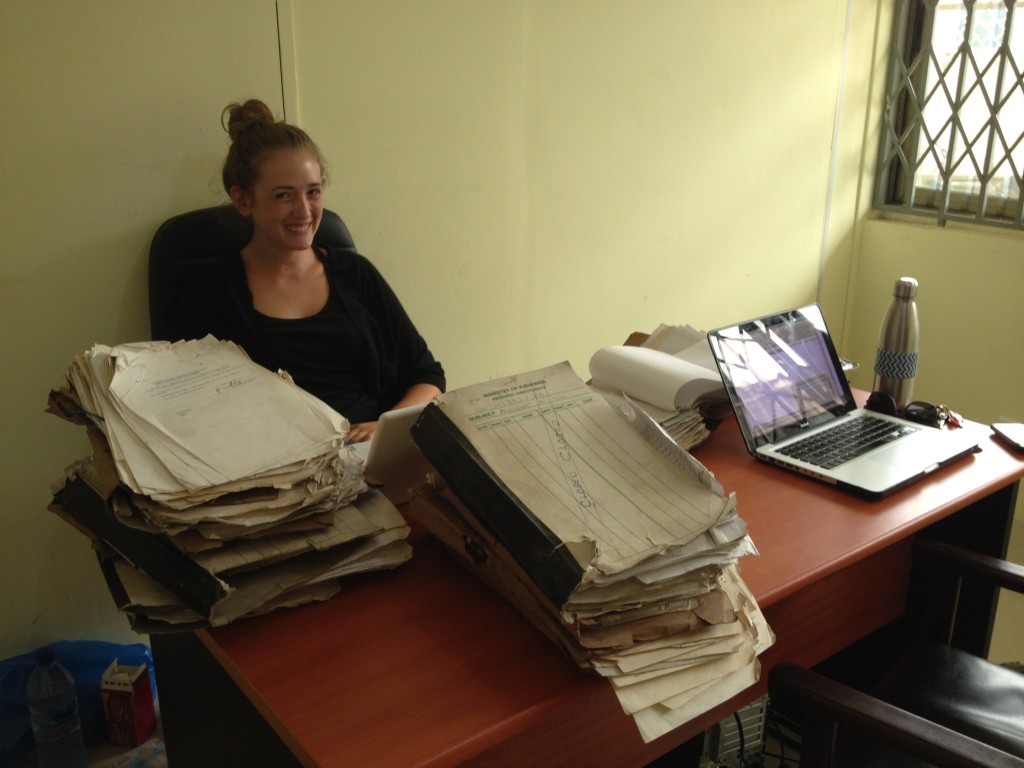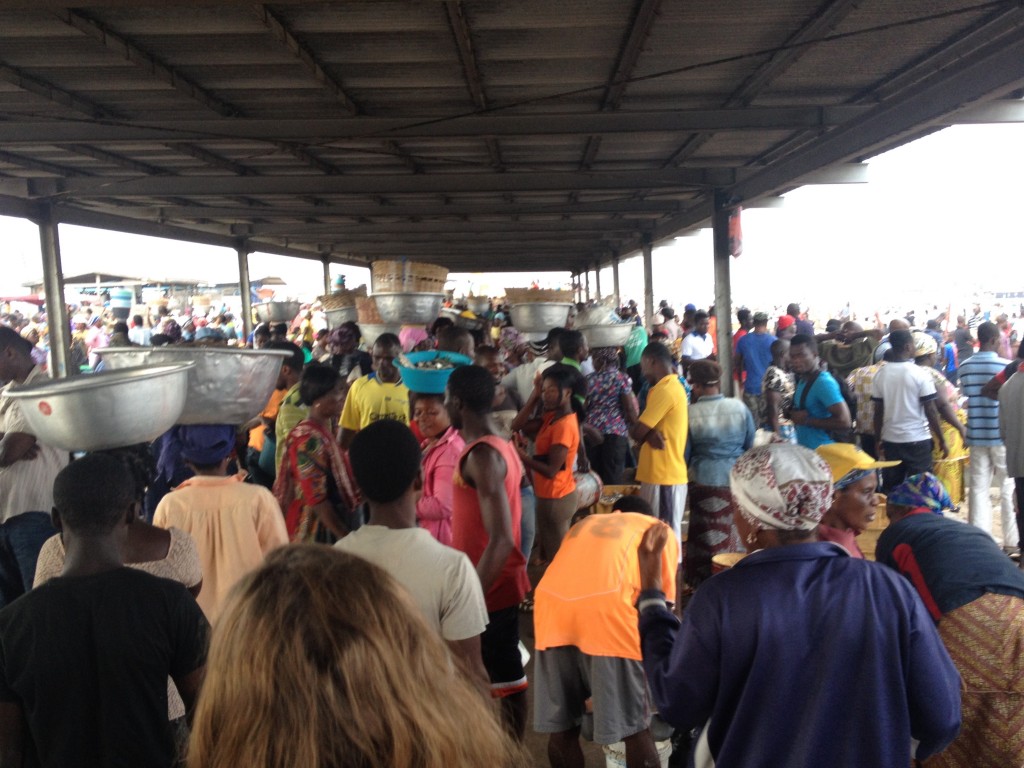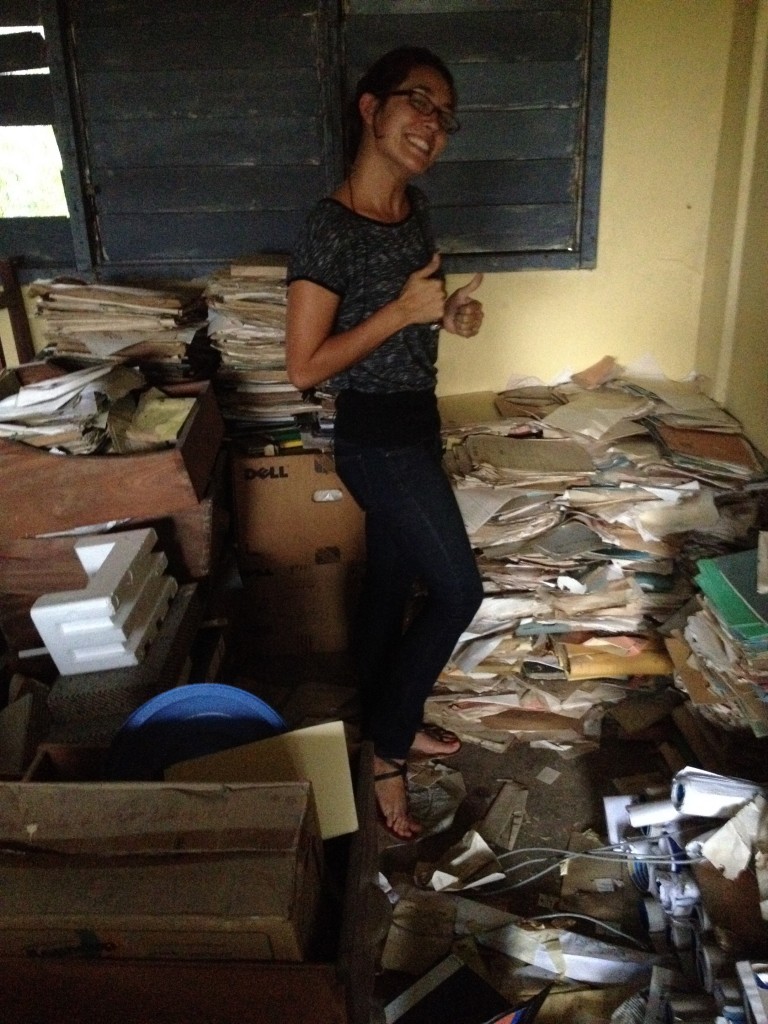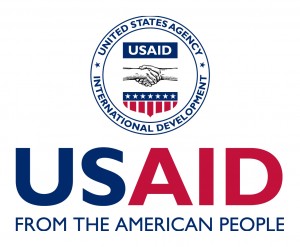 Tonight I said farewell to Maya, my undergraduate research assistant, who has been traveling with me through coastal Ghana for the last three weeks. Maya and I have been working together since February—when she was hired through the Undergraduate Research Apprentice Program (URAP) at Berkeley—on a database from information collected during my fieldwork last year. The data includes records of interactions at sea between industrial and artisanal fishing boats in coastal Ghana, and many of them include rare information on the nature of these interactions—some cooperative and friendly, some violent or criminal.
Tonight I said farewell to Maya, my undergraduate research assistant, who has been traveling with me through coastal Ghana for the last three weeks. Maya and I have been working together since February—when she was hired through the Undergraduate Research Apprentice Program (URAP) at Berkeley—on a database from information collected during my fieldwork last year. The data includes records of interactions at sea between industrial and artisanal fishing boats in coastal Ghana, and many of them include rare information on the nature of these interactions—some cooperative and friendly, some violent or criminal.
The purpose of our work the last two weeks: to revisit the reports from the database, fill in missing information, and uncover reports not previously recorded from the archives, reaching back to the 1950s. The work had us spending a few days in Accra, a week in the fishing port in Tema, a week in the fisheries office in Takoradi, and a final last night by the beach in Busua. While archive work may not be the most glamorous field work in Sub-Saharan Africa, going through the archives has provided an incredible lens into the changes that both the fisheries resources and marine resource governance have undergone in Ghana in the last thirty-plus years.
Ghana is one of the largest fishing countries in West Africa, and Ghanaians rely on fish for over 50% of their animal protein intake—as compared to a global average of 15%. Fisheries are also a major contributor to income and employment in the area, and the most recent FAO State of World Fisheries and Aquaculture (2104) has Ghana employing 385,000 fish processors, most of whom are women. Yet even within this context, the majority of industrial fishing boats are owned and operated largely by foreign nations, and the interactions between this sector and the artisanal sector present uniquely difficult challenges for resource management and conservation. While many of these challenges require specific strategies of resource governance, a necessary first step is to gain a better understanding of how each sector contributes to resource harvesting, and how they work—or don’t work—together.
We hope the research we’re currently working on will help characterize both the social and ecological impacts of fishing in Ghana and contribute critical information to some of the stickier aspects of marine resource governance.



